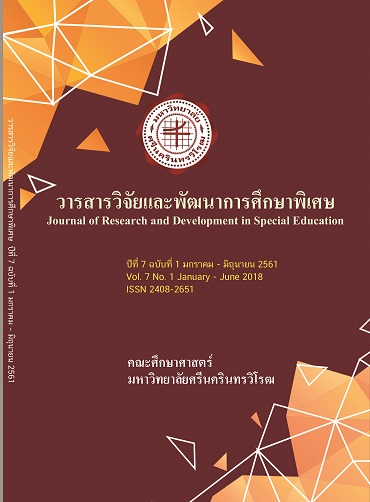An Implementation of an Instructional Delivery Model for Differentiated Instruction
Abstract
As it is undoubtedly evident among professionals and parents that students differ tremendously in many circumstances, it is deemed essential to deliver the instruction to meet the specific traits and needs of the students. In order to achieve this ultimate goal, the researchers constructed a model for the delivery of the lessons, and experimented it in an inclusive classroom setting. The study constituted 3 phases. Firstly, the Quantitative Phase, in which the data on the students were collected with reference to their brain functions, learning styles, multiple intelligence and interests. Secondly, the qualitative Phase, in which a delivery instructional model was constructed, named A Model for Instructional Delivery of Differentiated Instruction (MIDDI) and it quality was ascertained by a group discussion. And thirdly the Experiment Phase, which was also quantitative. The model was put into trial basis at a school in Bangkok, named Senanikom School in Bangkok, Thailand, which met the qualifications of the schools under investigation. Two grade 5 classes were chosen and were randomly assigned into an experimental group of 32 students, in science class, and the other as a control group comprising of 35 students. The 5 step Delivery Model was strictly followed. In the experimental group, the students were put into heterogeneous groups, and then homogeneous groups and independent study with regards to their brain dominance, learning styles, multiple intelligence and interests. The control group was taught by the same teacher in regular practices. The comparison of the post test scores between those of the control group and the experimental group yielded significant different, at the .05 level. The follow up using qualitative strategy revealed that the students enjoyed the lessons tremendously and felt very happy in participating in this sciences class activities. It was readily proved that the Model was effective and was recommended for further applications, generalization and replications.Downloads
Download data is not yet available.
Downloads
Published
2018-06-30
Issue
Section
Research article




